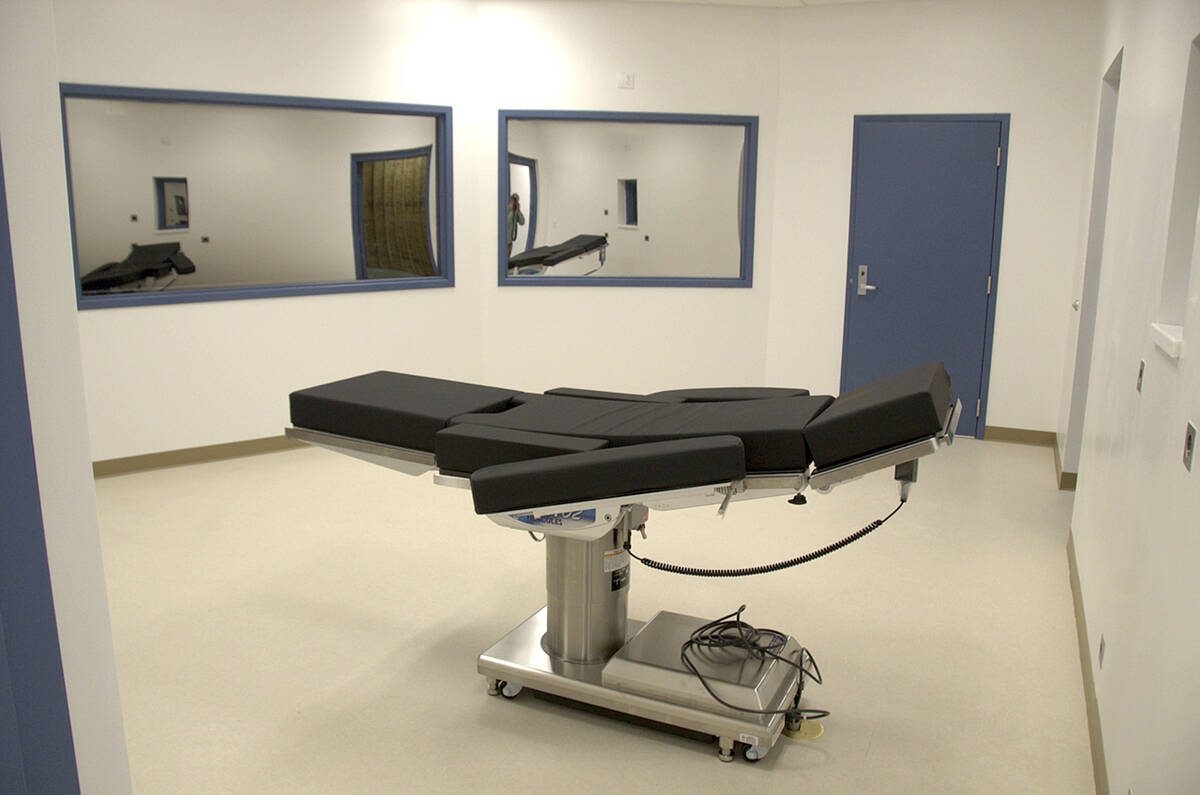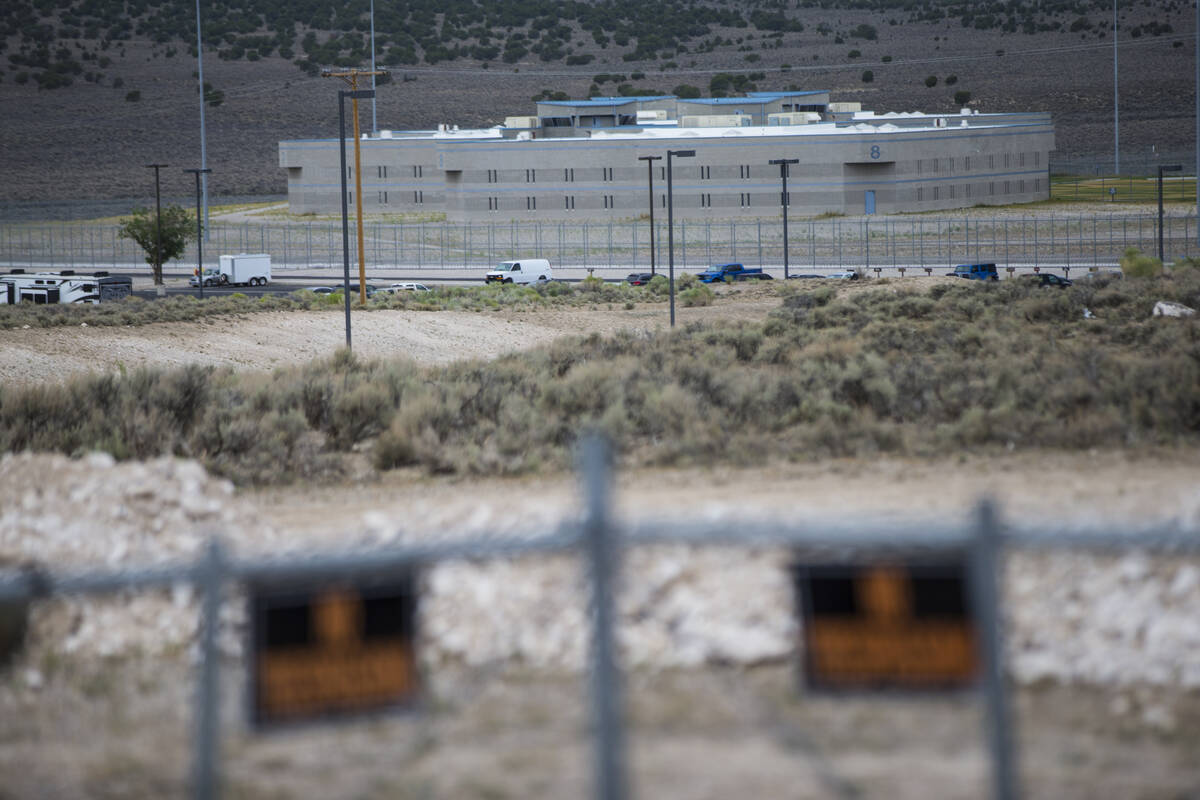All 57 prisoners on Nevada’s death row may get a reprieve
The Nevada Board of Pardons will consider whether to commute all death sentences in the state during a meeting scheduled for Tuesday.
The move, which was listed on the board’s meeting agenda, would change the sentences of those on death row to life in prison without the possibility of parole.
RELATED: The faces of Nevada’s death row.
Gov. Steve Sisolak requested the item to be added to next week’s meeting on Wednesday, spokesperson Meghin Delaney said in an emailed statement.
“The Governor believes this is a worthy item for the Commissioners to consider and will be voting in favor of the measure,” she said. “The Governor has always said that capital punishment should be sought and used less often, and he believes this is an appropriate and necessary step forward in the ongoing conversation and discussion around capital punishment.”
Sisolak sits on the board, as does Attorney General Aaron Ford and the justices of the Nevada Supreme Court.
Ford and Gov.-elect Joe Lombardo declined to comment. Lombardo, a Republican who currently serves as Clark County sheriff, defeated Sisolak, a Democrat, for re-election in November.
The move comes after Oregon Gov. Kate Brown announced on Tuesday that she would commute the death sentences for those on death row in the state, reducing their sentences to life in prison without parole.
According to the Department of Corrections, there are currently 57 prisoners on death row, but the state hasn’t executed a prisoner since 2006. In recent years, the state has struggled to find the drugs necessary for executions, as drug companies sought to restrict the use of their products in capital punishment.
Nevada state has executed 12 prisoners since 1976, according to the Death Penalty Information Center.
Legislation failed
Meanwhile, the Nevada Legislature has seen bills to outlaw capital punishment outright proposed in the past three legislative sessions without success. In 2017 and 2019, bills were introduced to repeal the death penalty, but they died in the Assembly Judiciary Committee. Another bill, introduced by Sen. James Ohrenschall, D-Las Vegas, died in the Senate Judiciary Committee in 2019. In 2021, a bill passed the Assembly on a party-line vote, but then died in the Senate Judiciary Committee.
Ohrenschall didn’t return a message seeking comment Thursday.
Sisolak during the 2021 session said that while he previously supported ending capital punishment, the 1 October shooting gave him pause about backing a complete repeal. Instead, he preferred reserving the option for cases involving mass shootings, for example.
The bill was controversial in another way, too: The Senate Judiciary Committee, where the bill died, was headed by state Sen. Melanie Scheible, D-Las Vegas, who at the time worked as a deputy district attorney in Clark County. Senate Majority Leader Nicole Cannizzaro, D-Las Vegas, also worked there at the time.
During testimony before the Assembly Judiciary Committee, Clark County District Attorney Steve Wolfson — Scheible and Cannizzaro’s boss in their full-time work — testified adamantly against the repeal of the death penalty.
In a statement released to the Review-Journal on Friday, Wolfson said he had major concerns with the proposed plan.
“In Nevada, the commutation of any sentence is rare, especially in cases involving a sentence of death,” he said. “In this situation, the law provides that a person seeking a commutation must apply to the Pardon’s Board and specify several things. I have many concerns regarding this agenda item, including whether all Nevada Laws were followed.”
Wolfson added that he and other county district attorneys were discussing their options before Tuesday’s meeting.
“I, and my fellow Nevada District Attorneys, are considering several options leading up to the scheduled hearing next Tuesday,” he said in the statement. “Have victims been notified of this attempt to commute the sentence of death on a person who murdered their loved one? Are victims being given a chance to voice their opinions on this matter? These concerns, among others, are being discussed, and all our options are being considered.”
Drug problems
In addition to legislative efforts, a more practical concern has vexed Nevada officials when it comes to capital punishment: Getting the drugs they need to actually carry out executions.
In June 2021, a lawyer for Hikma Pharmaceuticals claimed that Nevada obtained 50 vials of the drug ketamine illegally, demanding they be returned. The demand came about as the state made preparations to execute Zane Floyd, who was convicted of killing four employees of an Albertsons grocery store on West Sahara Avenue in 1999.
The same company had previously sued the state to prevent its drug fentanyl from being used to execute convicted murderer Scott Dozier, who eventually committed suicide on death row.
Former Nevada Department of Corrections Director Charles Daniels testified in December 2021 that, of all the complications related to Floyd’s potential execution, he was most concerned about the drugs to be used in the execution expiring before the punishment could be carried out.
Daniels was later asked to resign by Sisolak following the escape of an inmate, and later demanded $1 million, citing a hostile work environment.
Contact Taylor R. Avery at TAvery@reviewjournal.com. Follow @travery98 on Twitter.






























